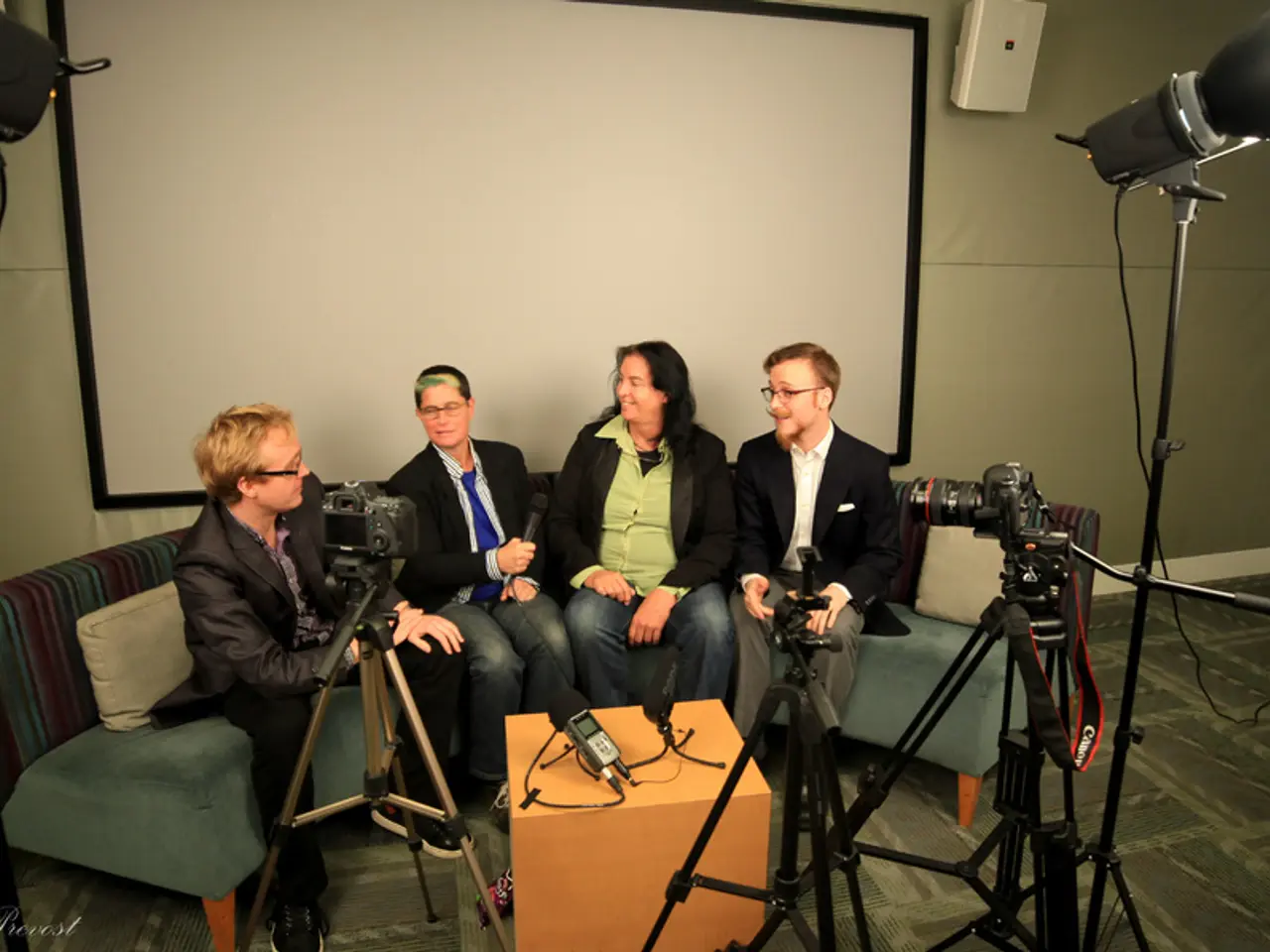Software Engineering Interview Process at DeltaX Unveiled
Final-Year BTech Student Advances to Final Round of Product-Based Company Interview
A final-year BTech student from West Bengal, India, has made it to the final round of interviews for a Software Engineer position at a product-based company. Out of 311 candidates, the student was the only one to clear Round 2, demonstrating impressive problem-solving and coding skills.
The interview process began with an MCQ Screening round, lasting 45 minutes, which assessed core computer science fundamentals, including Computer Networks, DBMS, Operating Systems, OOPs, and Programming Fundamentals. The student, who is seeking opportunities in software development roles, managed to clear this round, moving forward to Round 2 – a Coding Assessment lasting 2 hours.
Conducted online on a coding platform with strict question by question timers, Round 2 consisted of five questions, each with a fixed time limit and no option to revisit previous questions. The student successfully completed the first question, a Sliding Window problem, within the 20-minute limit. However, the student faced issues with the second question, a JSON Recursion problem, and could only partially complete it within the allotted time.
The fourth question, a Backtracking problem, was solved successfully within the 25-minute allotted time. The fifth and final question, a hybrid Backtracking plus Dynamic Programming challenge, had a 30-minute limit. The student passed most visible test cases but likely failed some hidden ones due to a Time Limit Exceeded error.
The final stage of the interview focused primarily on Data Structures & Algorithms, DBMS, and OOPs concepts. The OOPs portion involved designing a class and answering questions on abstraction and inheritance. The student faced difficulties with complex SQL join queries and certain SQL join queries in the DBMS segment, as well as unclear OOPs concepts.
The interview was a Google Meet interview with a live coding component. It began with a self-introduction and an overview of the student's project. The interviewer asked the student to write pseudocode for two problems from the coding assessment, explain their approach, and perform dry runs.
Despite the challenges faced during the interview, the student's professional and skill-oriented approach was evident. The student plans to strengthen their advanced SQL and NoSQL skills, revise and practice OOPs concepts, and work on improving time optimization for tackling harder coding problems.
The work environment was entirely virtual, with clear communication channels and well-structured interview rounds. The student received a rejection mail the next day, but being the only candidate to reach the final round out of 311 participants was still a milestone. The student remains optimistic about future opportunities in software development roles.
Strategies for Time Management and Optimization in Software Engineering Interviews
Effective time management and optimization are crucial skills in a software engineering interview with multiple coding rounds. Here are some common strategies:
- Prioritizing tasks and managing time carefully by breaking down problems into smaller parts and allocating specific time blocks for each segment.
- Using techniques such as the Pomodoro Technique, which involves working in focused intervals followed by short breaks to maintain mental endurance and avoid burnout during prolonged coding sessions.
- Creating a mental or written to-do list for the interview problems, ranking them by complexity or importance to tackle simpler or higher-yield questions first.
- Maintaining focus by limiting distractions, such as preparing your environment ahead of the interview to reduce interruptions.
- Practicing time-boxing, i.e., setting firm time limits to solve each problem and moving on, to ensure all rounds or questions receive attention without risking getting stuck on a single problem.
- Being flexible and adjusting priorities during the interview in case of unexpected difficulties or time constraints, while communicating your thought process clearly to interviewers.
- Employing the STAR method when describing your time management approach to demonstrate how you organized your work and delivered results under pressure.
These strategies help balance speed with correctness and showcase your ability to work effectively under time pressure – key skills interviewers seek in software engineering assessments.
- The Sliding Window problem, a question from the online coding platform during the interview, was one of the tasks the student managed to complete within the given time.
- In Data-and-Cloud-Computing courses, students can learn strategies such as time-boxing to better manage their time in software engineering interviews.
- To improve time optimization during coding challenges, the final-year BTech student plans to concentrate on strengthening their advanced SQL and NoSQL skills.
- Effective strategies for time management and optimization in software engineering interviews can include prioritizing tasks and carefully managing time for each segment.
- During the final round of the software engineer position interview, the student faced challenges with complex SQL join queries, demonstrating areas for improvement in their DBMS skills.
- The interviewer asked the student to write pseudocode for two problems from the coding assessment as a part of the job-search process, which showcased the student's skills in problem-solving.
- In addition to revising OOPs concepts, the student intends to work on improving time optimization to tackle harder coding problems efficiently.
- Career-development resources like education-and-self-development materials on Effective Time Management can assist students in enhancing their time management skills for future software engineering interviews.




